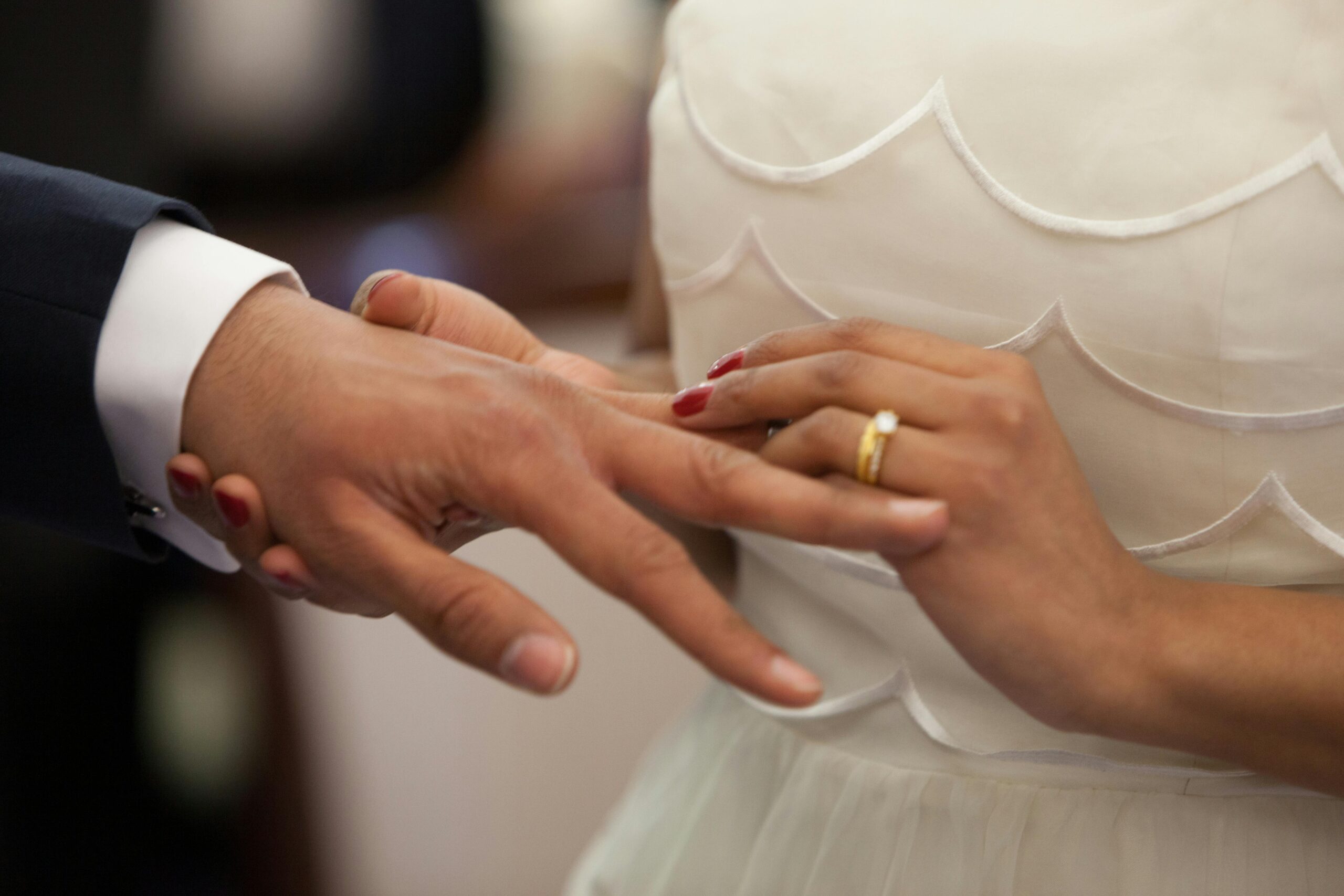Under what rules can fiancés modify their surnames? What changes can be made during the marriage and how can surnames be changed after the divorce?
How Can Fiancés Change Their Surnames?
- Choosing Common Surname
Spouses can choose the surname of one of them as a joint (family) surname. In accordance with the principle of equality between men and women, this surname can be either the surname of the husband or the wife. But not the last name of a third person. Joint children will also bear the chosen family surname.
If one of the fiancés has a double surname, the fiancés may also decide that this double surname shall be the common surname.
- Both Keep Their Own Surname
Both Fiancés can keep their surnames. However, an agreement is necessary as to whose surname their common children will bear. This chosen surname will be borne by all their common children. It is therefore not possible to make a choice for some children in one way and for others in a different way. The choice also applies to joint children who were born before the marriage.
However, spouses can additionally choose a joint surname (family) at any time. If they choose the surname of another of the spouses as the joint surname, than whose surname the joint children have so far borne, by law the surname of the children is also changed to the family surname.
- Choosing Common Surname and Adding the Previous Surname
The third possibility is that the spouses choose the surname of one of them as a joint (family) surname, i.e. joint children will also bear it, and the other spouse will add their original surname to the joint surname - so they will have the so-called Connected Surname. The common surname will always come first, the former surname (Connected Surname) will come second. This order is given by law.
Example: the fiance's name is Jan Pospíšil, the fiancee's name is Alena Pomalá. They will choose the Groom's surname as their common surname - i.e. Pospíšil/Pospíšilová. However, the Bride decides to join her previous surname to the common surname - her name will therefore be Alena Pospíšilová Pomalá.
The law establishes certain rules against excessive chaining of surnames:
- In the event that the spouse whose last name was not chosen as a common one already has a joint surname, this spouse can choose only his first surname as the joint surname - that is, the surname that was the joint surname in his previous marriage.
Example: the Groom's name is Aleš Velký, the Bride's name is Jana Zelená Nováková, while her surname is added (the surname Zelená is the surname of her ex-husband, which they chose as common). The fianceés choose the Groom's last name as their common name - i.e. Velký/Velká. If the Bride would like to add her current surname to the joint surname, she can only do so with the surname that was a common surname in her previous marriage - it can therefore be Jana Velká Zelená.
- If the spouse, whose surname is to become a common surname, already has a double surname (own surname and connected surname), then the other of the spouses cannot add their surname for this "doubled" common surname.
Example: the Groom's name is Aleš Malý, the Bride's name is Jana Zelená Nováková, while this surname is added (the surname Zelená is the surname of her ex-husband, which they chose as common). The fianceés will choose the Bride's surname as their joint surname - i.e. Zelená Nováková/Zelený Novák. However, the Groom cannot have his current surname entered behind the common surname (so he cannot have a "triple surname" - Aleš Zelený Novák Malý).
However, the law does not apply this restriction to a situation where a person has a double family name (i.e. acquired otherwise than through marriage). The restriction applies only to the surname attached. If, for example, the Groom had the surname Novák Blažek from birth, and this surname should be declared common surname at the time of his marriage, it is theoretically possible for the Bride to declare that she will add her previous surname to this common surname.
At What Moment Shall the Engaged Couple Agree?
Regarding the issue of surnames, the fianceés must agree at the latest during pre-marriage procedure. If it is a civil marriage, they declare the surname directly during the ceremony. In a church marriage, e.g. in the Roman Catholic Church, the declaration is not part of the ceremony, and therefore the agreement must be secured already during the pre-marriage procedure.
Subsequent Changes of Surname After Wedding
If the spouses have a common surname, a surname change is possible, especially if the surname is ridiculous or derogatory, or there is a serious reason for it. The change can only be allowed with the consent of both spouses, and the change applies to both spouses and joint children. If the joint children were older than fifteen, their consent to the change is also required.
If the spouses have different surnames, a change may take place only to the surname of one of them. The spouse (whose surname will then be the common surname) must also give his consent to the change.
Hyphenation of Female Surname
In the Czech Republic, female surnames are formed in accordance with the rules of Czech Grammar. However, upon the woman's request, the surname that the woman will use after marriage can be entered in the Registry Office in masculine form.
Effective as of 1/1/2022, the conditions previously required for entering a surname in the masculine form have been abolished (note: previously the applicant lady had to be a foreigner; or she could be a citizen with permanent residence abroad; a citizen whose husband or the partner is a foreigner; or a citizen of foreign nationality).
Surname of Divorced Spouse
If one spouse has adopted the surname of the other spouse, he/she can notify within 6 months of the divorce at Registry Office that he/she is adopting his/her original surname back. The same applies if the other spouse's surname was accepted as common and the applicant spouse added their previous surname in the second place - he/she can announce that they will continue using only their original surname. It is a unilateral decision of the divorced spouse to return to the former surname. The second spouse (whose surname was common) has no means to force the ex-husband to change, nor to prevent the change. The Registry Office does not decide on the change - it only takes note of the notification and effects the change.
If you need any legal advice on Family Law issues, we are here to help.

